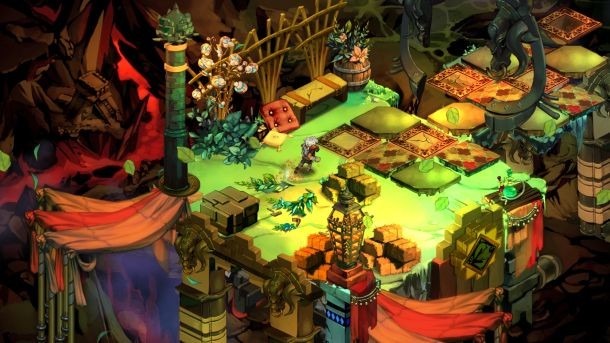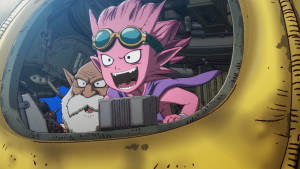Please support Game Informer. Print magazine subscriptions are less than $2 per issue
Matt Miller’s Top Five Games Of Last Generation

I’m taking a slightly different tack here than some of my colleagues. In reality, all of the Game Informer editors play a healthy mix of big games like Mass Effect and Grand Theft Auto, and smaller games like Limbo and Flower. However, it’s easy for some of those smaller games to get lost in the shuffle, so I’m keeping my list focused completely on indie titles from last generation. These games were all important to me for the way they helped redefine my expectations for the games I play. Moreover, I wouldn’t hesitate to recommend any of these five titles to any gamer eager to experience the indie scene, no matter when they released.

5. Castle Crashers
With its simple arcade sensibilities and addictive upgrade mechanics, Castle Crashers singlehandedly carved out a place for the old-school brawler on new-school platforms. A goofy sense of humor pervades the adventures of these multi-colored knights as they gleefully hack their way across the screen. Smart level designs, crazy bosses, and evocative art help it stand out and excel.
While other indie games in the years before the release of Castle Crashers explored the potential for cooperative play, Castle Crashes nailed the mix of frantic action and silly antics to make for some fantastic shared game sessions. It also sealed The Behemoth as an indie developer I’ll be excited to follow no matter where they go next. I have fond memories of many insane game sessions played with friends at my side as we alternately chopped into our enemies and then frantically turned on each other in the name of a kiss from the princess.

4. Super Meat Boy
Out of left field, the ridiculous adventures of a slab of meat trying to save his band-aid girlfriend from an evil fetus turned out to be one of the most precise and challenging platformers of all time. Team Meat became gaming superstars overnight as players flocked to the highly skill-based jumping and running of the game.
I’m often turned off by games that create challenge simply by making something more tedious or obtuse than it needs to be. Super Meat Boy shines because its wildly steep difficulty is truly skill-based, and the punishment for failure is very small. In fact, with its fun replay function after completing a level, Super Meat Boy managed a feat few games achieve – making something entertaining emerge out of failure. For my part, I spent hours perfecting runs at various levels, and while there was plenty of cursing involved, I never felt like I was being cheated of a great platforming experience.
[Next Page: My top three games of last generation]

3. Bastion
Independent games have become a place where players can look to see more adventurous experiments in design, storytelling, and concept. Supergiant Games took advantage of its place as a new independent studio by trying out a wealth of clever ideas in its debut, Bastion. The gamble paid off.
As a gamer who cares a great deal about storytelling, the implementation of a dynamic narrator was a revelation. As I moved my character across the screen, the continual commentary track made it feel like a campfire tale was unfolding in response to my actions. Along with an extremely clever upgrade system, beautiful art, evocative music, and a heart-wrenching, choice-driven ending, Bastion remains one of the most memorable games I’ve played.

2. Journey
I recall sitting in a small meeting room at E3 several years ago when Jenova Chen first introduced the concept of Journey. His vision was of a game that brought people together in a novel way, and spoke to some of the fundamental experiences of being human – life, death, and the journey we take in between.
Few games I’ve played have so aptly matched their original vision as the final version of Journey. Quiet and poetic sentiments sit side by side with moments of unfettered joy and tense fear. The integration of a second player is more than just an unusual multiplayer experience – it’s a commentary on the way we experience our paths through life, and the way everything becomes easier with a companion by our side.

1. Braid
While the independent game scene undoubtedly had some remarkable entries prior to Braid, it’s hard to imagine an indie project that had a bigger impact on changing gamers’ perceptions and attracting attention to the burgeoning movement of small indie developers.
I came across Braid largely by happenstance a few months before its final release in an early preview build, and it was like uncovering a secret treasure whose value no one else truly understood. I marveled at the spare design aesthetic; everything in the game seemed to have a clear purpose and place, and the puzzles challenged me in ways I’d never before encountered in games. Its enigmatic story is open to interpretation, but no matter how you choose to understand its message, Braid’s final moments are memorable and surprising.










